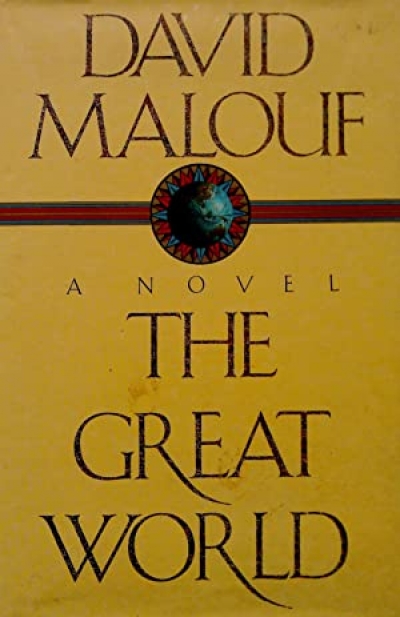Archive
Dog Fox Field by Les Murray & Blocks and Tackles by Les Murray
Simon Patton reviews 'The Earthquake Lands' by Hal Colebatch, 'The Winter Baby' by Jennifer Maiden, and 'To the Ocean & Scheherazade' by Richard Allen
One of the challenges confronting the writer of poetry is the balancing of public and private modes in an engaging and satisfactory whole. In these three collections the precarious possibilities of balance, of confiding and confronting, are attempted in very different ways.
... (read more)Children’s Games by Geoffrey Lehmann & The House of Vitriol by Peter Rose
The Australian Bicentennial Arts Program has been documented in a collection of review articles recently published by Mead and Beckett. It is a record not only of the wide range of arts activities throughout the year but also of some of the issues which confronted the artists involved.
No, it is not an Aborigine on the front of the Australian Bicentennial Authority’s 1988 Reviews (edited by Sarah Overton). It is Mamadou Dioume as Bhima in Brook’s Mahabharata. And don’t be misled by the Aboriginal colours in a contemporary-primitive motif that hovers in the foreground about the title. The essential problem is, evidently, to appear respectable while affirming a vanquished culture (is there a preferable word?) within an imperial medium.
... (read more)Men are running scared, says David Foster, in the wake of ‘uppity’ women who want to emasculate them. In conversation with him about his new book, Mates of Mars, Rosemary Sorensen contemplates the rules and codes of chivalric fighting.
David is a little defensive as he answers the door to me in Bundanoon, where he lives with Gerda and hordes of children. He’s not too impressed with literary critics, and academics leave him cold. But he knows that there’s a game called publicity and if people are going to find out about his new novel, then he will have to tolerate the prying and jostling of people such as myself. I’d already told him that I think Mates of Mars is outrageously good, but I could see in his face he thought that might have been an angle I was using, a feint, a sly positioning so that I could manoeuvre myself into a perfect position to kick him in the groin. David Foster is very, very wary of women.
... (read more)I was supercilious towards Italy and Italians before seeing Italian films and reading Curzio Malaparte’s novels. Malaparte foiled the superciliousness while the films’ backgrounds, something as simple as sunlight in the squares, intrigued. Previously France had provided an alternative to Anglo-Saxon culture. An Irish heritage set me askew to Anglo-Saxondom, but it did not give me another language as English had supplanted Gaelic. In any case, Ireland was the past and a somewhat mythic past at that. My parents were attached to Ireland but even their parents had been born in Australia. Indeed there had been no direct contact with Ireland since the mid-nineteenth century; it was the past you could not reach but only romanticise. Being of Irish origin meant being Catholic outside the Anglo-Protestant Pale.
... (read more)Hero, Allan Baillie’s sixth novel for young readers, shows this seasoned storyteller at his best. Succinct yet incisive, it is a highly disciplined display of how tight technique can turn a single incident into an exciting story. Right from the first line, ‘A single drop of water exploded on Pamela Browning’s open exercise book’, we know we are on the precipice of an event towards which every mumble on the earth and rumble in the sky lead.
... (read more)Would it surprise you to know that a number of our well-known writers write to please themselves? Probably not. If there’s no pleasure, or challenge, or stimulus, the outcome would probably not be worth the effort. If this effort is writing, it seems especially unlikely that someone would engage in the activity without enjoying the chance to be their own audience.
... (read more)




